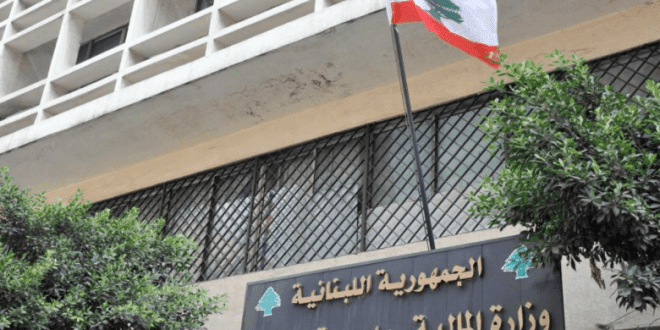النظام الضريبي في لبنان: بين الجهل والتجاهل
مستقبل النظام الضريبي في لبنان: التحديات والإصلاحات المطلوبة
بعد انتخاب رئيس الجمهورية في 9 كانون الثاني 2025 وتشكيل حكومة الإصلاح والإنقاذ في 8 شباط 2025، يواجه لبنان لحظة حاسمة في انتعاشه الاقتصادي. تشكل الموازنة العامة للعام 2025 حجر الزاوية في هذا الجهد، حيث تحدد طبيعة المسار الاقتصادي للبلاد في الأشهر والسنوات المقبلة. تعتبر الموازنة المتوازنة أساس الإدارة الفعالة للمالية العامة، فهي أداة استراتيجية لتوزيع وتخصيص الموارد، وضمان الانضباط المالي، وتعزيز الاستقرار الاقتصادي.
التحديات التي يواجهها النظام الضريبي اللبناني
النظام الضريبي في لبنان يعاني من العديد من الأوجه السلبية، بدءاً من الجهل بتطبيقه وصولاً إلى تجاهل قضايا رئيسية تتعلق بالعدالة والشفافية. في لبنان، تمثل الضرائب جزءاً مهماً في تمويل الخدمات العامة الأساسية مثل البنية التحتية، الأمن، التعليم، والرعاية الصحية. لكن، يواجه النظام الضريبي مجموعة من التحديات، أبرزها:
التفاوتات الهيكلية والضرائب التنازلية
يعتمد النظام الضريبي في لبنان على الضرائب غير المباشرة مثل ضريبة القيمة المضافة (VAT)، التي تؤثر بشكل غير متناسب على الفئات ذات الدخل المنخفض، مما يعزز الفجوة الاقتصادية بين الأغنياء والفقراء.تحديات الفساد والحوكمة
يعاني النظام الضريبي من الفساد والتدخل السياسي، مما يعوق تطبيق القوانين بشكل عادل ويزيد من مستويات التهرب الضريبي.القصور الإداري
ضعف الإنفاذ بسبب البنية التحتية التكنولوجية غير الكافية، مما يساهم في زيادة التهرب الضريبي وضعف الامتثال للأنظمة الضريبية.التشريعات الضريبية القديمة
القوانين الضريبية لم تعد تتماشى مع التغيرات الاقتصادية الحديثة، مثل التجارة الإلكترونية، مما يتيح الفرص للتهرب الضريبي.انعدام الثقة بين المواطن والدولة
ضعف الشفافية في توزيع الإيرادات الضريبية وسوء الإدارة يؤديان إلى تآكل الثقة في النظام الضريبي وزيادة التهرب الضريبي.
التدابير التمهيدية للإصلاحات الضريبية
يتطلب إصلاح النظام الضريبي في لبنان نهجًا متعدد الأبعاد. يجب أن يكون النظام الضريبي عادلاً، شفافًا، ومدارًا بكفاءة لدعم التنمية الاقتصادية المستدامة. تشمل التوصيات الإصلاحية ما يلي:
توسيع القاعدة الضريبية
- تحويل الاقتصاد غير الرسمي إلى قطاع رسمي، وتحفيز الشركات لتلتزم بالإجراءات الضريبية.
- تطبيق نظام التعريف الضريبي لجميع المقيمين، بما في ذلك الأجانب.
تحسين إدارة الضرائب
- تعزيز الرقمنة باستخدام الأنظمة الإلكترونية لتقديم الإقرارات الضريبية والدفع الإلكتروني.
- استخدام الذكاء الاصطناعي وتقنيات البلوكشين لكشف الاحتيال في التصريحات الضريبية.
تعزيز العدالة الضريبية
- دمج مصادر الدخل في إطار ضريبي موحّد مع شطور ضريبية تصاعدية.
- إزالة الامتيازات والخصومات التي تعزز عدم الامتثال.
مكافحة الفساد وتحسين المساءلة
- تقوية الهيئات الرقابية المستقلة.
- الإفصاح المنتظم عن الإيرادات والنفقات لتعزيز الشفافية.
تعزيز المشاركة العامة والوعي الضريبي
- إطلاق حملات للتثقيف الضريبي وتعزيز المسؤولية الاجتماعية.
- تشجيع المشاركة المجتمعية في الوعي بالامتثال الضريبي.
خارطة الطريق للحكومة الجديدة
تواجه الحكومة الجديدة تحديات مالية ضخمة تتعلق بإصلاح النظام الضريبي اللبناني، وبالذات في إطار موازنة 2025. يتطلب الوضع معالجة فورية للضرر الناتج عن الاعتداءات الإسرائيلية والعودة المتوقعة للاجئين السوريين. وفي ظل هذه التحديات، يجب على الحكومة اللبنانية إعطاء الأولوية لإعادة الإعمار وتحقيق استقرار اقتصادي من خلال تحسين النظام الضريبي وتوسيع قاعدة الإيرادات.
خاتمة
من خلال إصلاح النظام الضريبي، يمكن للبنان أن يتحول إلى نموذج يتسم بالعدالة الاجتماعية والمرونة الاقتصادية. سيتطلب الأمر تغييرات جذرية وتعاوناً بين الحكومة والمواطنين والمجتمع الدولي لتحقيق هذا الهدف. إن إصلاح النظام الضريبي هو مفتاح النهوض بالاقتصاد اللبناني وضمان استدامة المالية العامة في المستقبل.
Tax System in Lebanon: Between Ignorance and Neglect
Lebanon’s Tax System: Challenges and Reform Requirements
After the long-awaited election of the president on January 9, 2025, and the formation of the reform and rescue government on February 8, 2025, Lebanon faces a decisive moment in its economic recovery. The 2025 budget plays a pivotal role in this process, as it will define the country’s economic path in the coming months and years. A balanced budget is essential for effective public finance management, as it acts as a strategic tool for resource distribution, financial discipline, and economic stability.
Challenges Faced by Lebanon’s Tax System
Lebanon’s tax system suffers from deep-rooted shortcomings, including structural inequalities, weak governance, and lack of public trust. Taxation plays a critical role in financing essential public services such as infrastructure, security, education, and healthcare. However, the tax system faces several challenges:
Structural Inequalities and Regressive Taxes
The Lebanese tax system is largely regressive, burdening lower-income groups disproportionately while providing loopholes and preferential treatment to wealthier individuals and corporations. Heavy reliance on indirect taxes such as VAT exacerbates income inequality.Challenges of Corruption and Governance
The tax system is plagued by corruption and political interference, undermining the fairness and efficiency of tax collection and enforcement.Administrative Shortcomings
Outdated enforcement tools, inadequate technological infrastructure, and lack of skilled personnel hinder tax collection efficiency and compliance monitoring.Outdated Tax Legislation
Lebanon’s tax laws have failed to keep pace with modern economic changes, such as digital transactions and e-commerce, leading to tax evasion and revenue loss.Lack of Public Trust and Informal Economy
Wide-scale distrust regarding tax revenue distribution, coupled with poor governance, erodes tax morale. The growth of the informal economy complicates tax enforcement.
Preliminary Measures for Tax Reform
Tax reform in Lebanon requires a multifaceted approach to address existing flaws, improve enforcement mechanisms, and restore public trust. A well-functioning tax system must be fair, transparent, and efficiently managed to support sustainable economic development. The following recommendations aim to tackle current challenges and lay the foundation for a fair and modern fiscal framework:
Expanding the Tax Base
- Formalize the informal economy by offering incentives and simplifying registration processes to encourage voluntary compliance among informal businesses.
- Implement a Tax Identification Number (TIN) system for all residents and foreign nationals to improve accountability.
Improving Tax Administration
- Digitize tax declaration (e-declaration) and payment (e-payment) systems to streamline tax collection and improve transparency.
- Use advanced technologies like Artificial Intelligence (AI) and Blockchain to detect fraud and automate routine tax administration tasks.
Enhancing Tax Equity
- Integrate income sources into a unified tax framework with progressive tax brackets.
- Eliminate tax privileges and amnesty schemes that reward non-compliance.
Combating Corruption and Improving Accountability
- Strengthen independent regulatory bodies to oversee tax management and revenue allocation.
- Regularly publish revenue and expenditure reports to enhance transparency.
Enhancing Public Participation and Tax Awareness
- Launch public awareness campaigns to improve financial and tax literacy and foster a sense of tax responsibility.
- Empower local governments to engage communities in tax compliance awareness and revenue allocation transparency.
Roadmap for the New Government
The new Lebanese government faces significant financial challenges in the 2025 budget, especially following the Israeli attack in late 2024 and the potential return of Syrian refugees. To move forward, Lebanon must reassess its public finance priorities, rebuild infrastructure, and adapt to demographic shifts.
Conclusion
By reforming its tax system, Lebanon can transform into a model of social justice and economic resilience. This will require fundamental changes and cooperation between the government, citizens, and international partners. Tax system reform is the key to Lebanon’s economic recovery and ensuring long-term fiscal sustainability.
Translated by economyscopes team
المصدر: محمد فحيلي – نداء الوطن
 سكوبات عالمية إقتصادية – EconomyScopes إجعل موقعنا خيارك ومصدرك الأنسب للأخبار الإقتصادية المحلية والعربية والعالمية على أنواعها بالإضافة الى نشر مجموعة لا بأس بها من فرص العمل في لبنان والشرق الأوسط والعالم
سكوبات عالمية إقتصادية – EconomyScopes إجعل موقعنا خيارك ومصدرك الأنسب للأخبار الإقتصادية المحلية والعربية والعالمية على أنواعها بالإضافة الى نشر مجموعة لا بأس بها من فرص العمل في لبنان والشرق الأوسط والعالم




